This article was medically reviewed by Joshua U. Klein, MD, FACOG and by wikiHow staff writer, Danielle Blinka, MA, MPA. Dr. Joshua U. Klein is a board certified Reproductive Endocrinologist, an Assistant Clinical Professor at the Icahn School of Medicine at Mount Sinai, and the Co-Founder of Extend Fertility. He specializes in IVF, egg freezing, infertility, fertility preservation, artificial insemination, and treating polycystic ovarian syndrome (PCOS). Dr. Klein has been published in numerous peer-reviewed academic journals such as Science, Fertility and Sterility, and Obstetrics and Gynecology. He holds a BA in English from Yeshiva University and an MD from Harvard Medical School.
There are 19 references cited in this article, which can be found at the bottom of the page.
This article has been viewed 139,890 times.
Is your period late because you’re pregnant, or because of Polycystic Ovary Syndrome (PCOS)? When you’re trying to conceive, waiting to take a pregnancy test might feel like forever, but we're here for you. Since you likely have irregular periods, figuring out when to do a home pregnancy test can feel like a guessing game. To put your mind at ease, we've answered all your questions about PCOS and pregnancy tests. We also have advice for improving your chances of conceiving and for having a healthy pregnancy.
Things You Should Know
- Take a pregnancy test if you think you could be pregnant or it's been 2 to 3 weeks since you've last had sex and you haven't had a period.
- Wait until after you've missed a period to take a test, and do it first thing in the morning so you get the most accurate results.
- Use any test that's not labeled as a "rapid response test" because they'll give you a more accurate reading.
Steps
Expert Q&A
-
QuestionIs being pregnant with PCOS high-risk?
 Joshua U. Klein, MD, FACOGDr. Joshua U. Klein is a board certified Reproductive Endocrinologist, an Assistant Clinical Professor at the Icahn School of Medicine at Mount Sinai, and the Co-Founder of Extend Fertility. He specializes in IVF, egg freezing, infertility, fertility preservation, artificial insemination, and treating polycystic ovarian syndrome (PCOS). Dr. Klein has been published in numerous peer-reviewed academic journals such as Science, Fertility and Sterility, and Obstetrics and Gynecology. He holds a BA in English from Yeshiva University and an MD from Harvard Medical School.
Joshua U. Klein, MD, FACOGDr. Joshua U. Klein is a board certified Reproductive Endocrinologist, an Assistant Clinical Professor at the Icahn School of Medicine at Mount Sinai, and the Co-Founder of Extend Fertility. He specializes in IVF, egg freezing, infertility, fertility preservation, artificial insemination, and treating polycystic ovarian syndrome (PCOS). Dr. Klein has been published in numerous peer-reviewed academic journals such as Science, Fertility and Sterility, and Obstetrics and Gynecology. He holds a BA in English from Yeshiva University and an MD from Harvard Medical School.
Board Certified Reproductive Endocrinologist It can be, unfortunately. Women with PCOS have a higher rate of miscarriage early on in their pregnancy, especially during the first trimester. They may also be at risk for developing glucose intolerance or insulin resistance during the second trimester.
It can be, unfortunately. Women with PCOS have a higher rate of miscarriage early on in their pregnancy, especially during the first trimester. They may also be at risk for developing glucose intolerance or insulin resistance during the second trimester. -
QuestionDoes PCOS cause big babies?
 Joshua U. Klein, MD, FACOGDr. Joshua U. Klein is a board certified Reproductive Endocrinologist, an Assistant Clinical Professor at the Icahn School of Medicine at Mount Sinai, and the Co-Founder of Extend Fertility. He specializes in IVF, egg freezing, infertility, fertility preservation, artificial insemination, and treating polycystic ovarian syndrome (PCOS). Dr. Klein has been published in numerous peer-reviewed academic journals such as Science, Fertility and Sterility, and Obstetrics and Gynecology. He holds a BA in English from Yeshiva University and an MD from Harvard Medical School.
Joshua U. Klein, MD, FACOGDr. Joshua U. Klein is a board certified Reproductive Endocrinologist, an Assistant Clinical Professor at the Icahn School of Medicine at Mount Sinai, and the Co-Founder of Extend Fertility. He specializes in IVF, egg freezing, infertility, fertility preservation, artificial insemination, and treating polycystic ovarian syndrome (PCOS). Dr. Klein has been published in numerous peer-reviewed academic journals such as Science, Fertility and Sterility, and Obstetrics and Gynecology. He holds a BA in English from Yeshiva University and an MD from Harvard Medical School.
Board Certified Reproductive Endocrinologist PCOS can cause macrosomia, which is the medical term for a high-weight baby. Macrosomia might require to you have a C-section, and can add extra risks to a vaginal delivery. Keep in mind also that in some cases of macrosomia, the baby may be born with low blood sugar.
PCOS can cause macrosomia, which is the medical term for a high-weight baby. Macrosomia might require to you have a C-section, and can add extra risks to a vaginal delivery. Keep in mind also that in some cases of macrosomia, the baby may be born with low blood sugar.
References
- ↑ https://www.mayoclinic.org/diseases-conditions/pcos/symptoms-causes/syc-20353439
- ↑ https://www.mayoclinic.org/healthy-lifestyle/getting-pregnant/in-depth/home-pregnancy-tests/art-20047940
- ↑ https://www.womenshealth.gov/a-z-topics/polycystic-ovary-syndrome
- ↑ https://my.clevelandclinic.org/health/articles/23439-ovulation
- ↑ https://www.mayoclinic.org/healthy-lifestyle/getting-pregnant/in-depth/home-pregnancy-tests/art-20047940
- ↑ https://www.mayoclinic.org/healthy-lifestyle/getting-pregnant/in-depth/home-pregnancy-tests/art-20047940
- ↑ https://www.shreeivfclinic.com/gynaecology/pcod/
- ↑ https://www.shreeivfclinic.com/gynaecology/pcod/
- ↑ https://www.mayoclinic.org/healthy-lifestyle/getting-pregnant/in-depth/home-pregnancy-tests/art-20047940
- ↑ https://www.shreeivfclinic.com/gynaecology/pcod/
- ↑ https://www.mayoclinic.org/healthy-lifestyle/getting-pregnant/in-depth/home-pregnancy-tests/art-20047940
- ↑ https://www.nhs.uk/pregnancy/trying-for-a-baby/signs-and-symptoms-of-pregnancy/
- ↑ https://www.cedars-sinai.org/blog/polycystic-ovary-syndrome.html
- ↑ Joshua U. Klein, MD, FACOG. Board Certified Reproductive Endocrinologist. Expert Interview. 20 August 2021.
- ↑ https://www.ncbi.nlm.nih.gov/pmc/articles/PMC4669857/
- ↑ Joshua U. Klein, MD, FACOG. Board Certified Reproductive Endocrinologist. Expert Interview. 20 August 2021.
- ↑ Joshua U. Klein, MD, FACOG. Board Certified Reproductive Endocrinologist. Expert Interview. 20 August 2021.
- ↑ https://www.cedars-sinai.org/blog/polycystic-ovary-syndrome.html
- ↑ https://www.nhs.uk/conditions/polycystic-ovary-syndrome-pcos/treatment/
- ↑ https://www.womenshealth.gov/a-z-topics/polycystic-ovary-syndrome
- ↑ Joshua U. Klein, MD, FACOG. Board Certified Reproductive Endocrinologist. Expert Interview. 20 August 2021.
- ↑ https://www.womenshealth.gov/a-z-topics/polycystic-ovary-syndrome
- ↑ https://www.hopkinsmedicine.org/health/conditions-and-diseases/polycystic-ovary-syndrome-pcos
- ↑ https://www.mayoclinic.org/diseases-conditions/pcos/diagnosis-treatment/drc-20353443
- ↑ https://medlineplus.gov/ency/article/007279.htm
- ↑ https://www.reproductivefacts.org/news-and-publications/patient-fact-sheets-and-booklets/documents/fact-sheets-and-info-booklets/ovarian-drilling-for-infertility/
- ↑ https://www.reproductivefacts.org/news-and-publications/patient-fact-sheets-and-booklets/documents/fact-sheets-and-info-booklets/ovarian-drilling-for-infertility/
- ↑ https://www.womenshealth.gov/a-z-topics/polycystic-ovary-syndrome
- ↑ https://www.hopkinsmedicine.org/health/conditions-and-diseases/polycystic-ovary-syndrome-pcos
- ↑ https://utswmed.org/medblog/home-pregnancy-tests/
- ↑ https://www.nichd.nih.gov/health/topics/pcos/more_information/FAQs/pregnancy
- ↑ https://www.ncbi.nlm.nih.gov/pmc/articles/PMC3493830/
- ↑ https://www.mayoclinic.org/healthy-lifestyle/nutrition-and-healthy-eating/expert-answers/prenatal-vitamins/faq-20057922
- ↑ Joshua U. Klein, MD, FACOG. Board Certified Reproductive Endocrinologist. Expert Interview. 20 August 2021.
- ↑ Joshua U. Klein, MD, FACOG. Board Certified Reproductive Endocrinologist. Expert Interview. 20 August 2021.
- ↑ https://www.pcosaa.org/pcos-pregnancy-and-delivery-complications/
- ↑ https://www.pcosaa.org/pcos-pregnancy-and-delivery-complications/
- ↑ Joshua U. Klein, MD, FACOG. Board Certified Reproductive Endocrinologist. Expert Interview. 20 August 2021.
- ↑ https://www.womenshealth.gov/a-z-topics/polycystic-ovary-syndrome
About This Article
If you have PCOS, it can be hard to know whether you're pregnant, since your periods may be very irregular. Instead of watching for a missed period, pay attention to other signs of early pregnancy, including tender breasts, nausea, abdominal bloating, low back pain, and having to urinate more often than usual. If you still think you might be pregnant, take a pregnancy test or visit your doctor. Keep reading to learn how diet and exercise can help regulate your ovulation if you have PCOS!
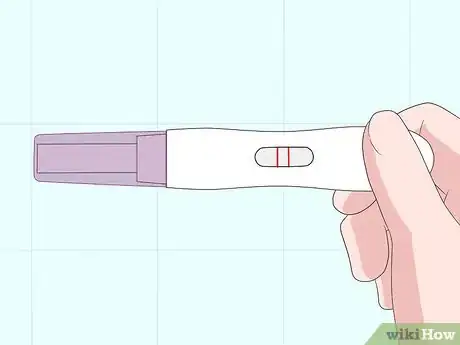
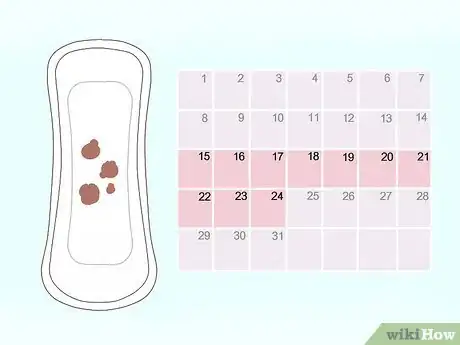
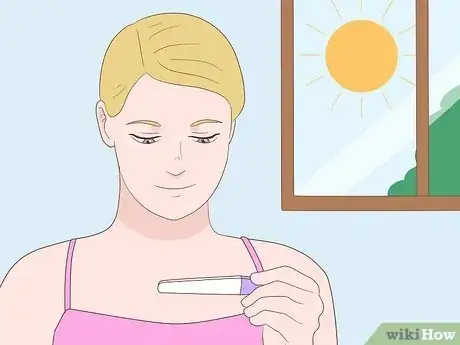
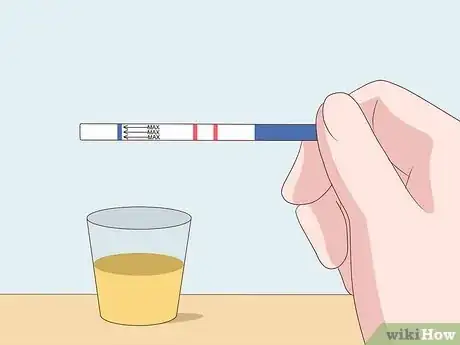
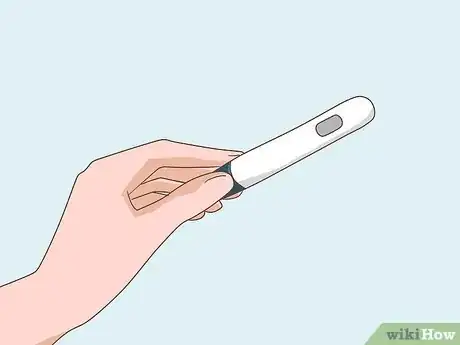
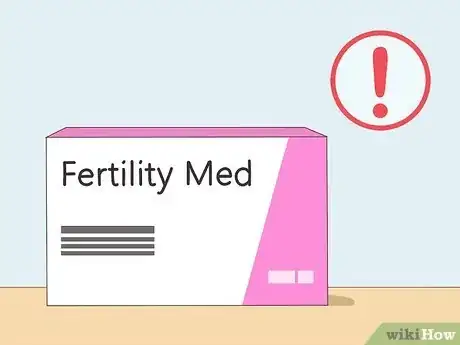

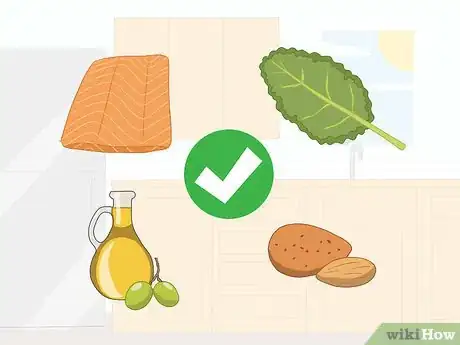

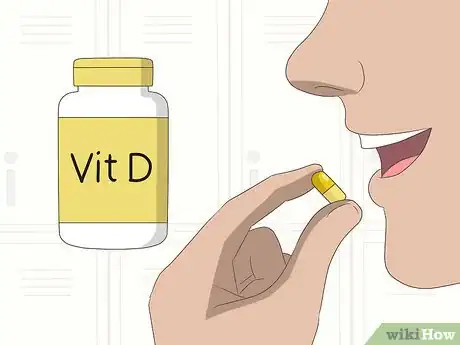



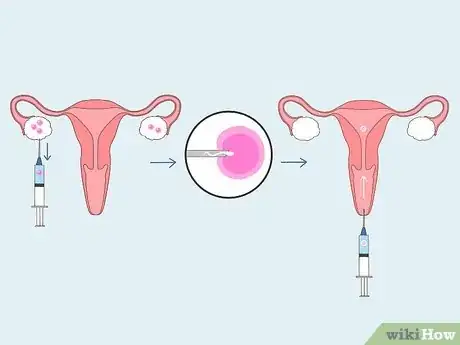

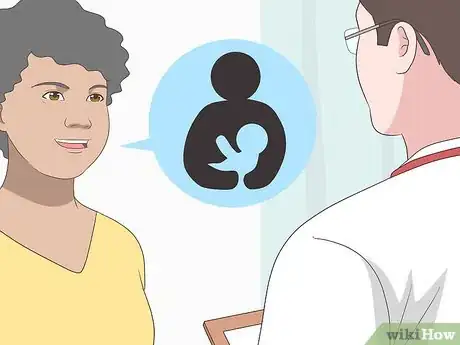
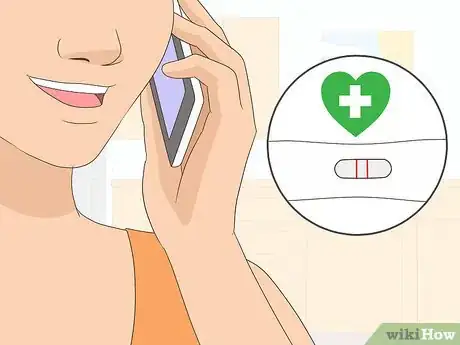
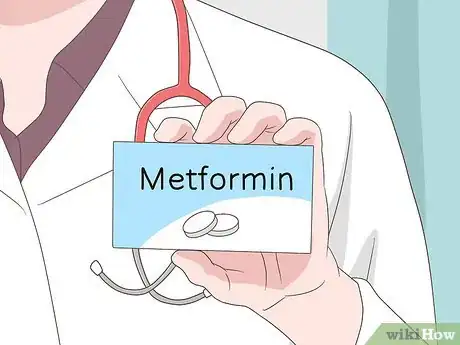

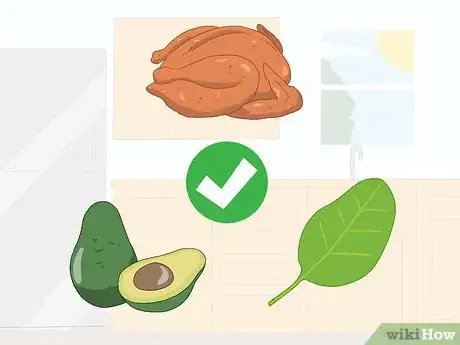
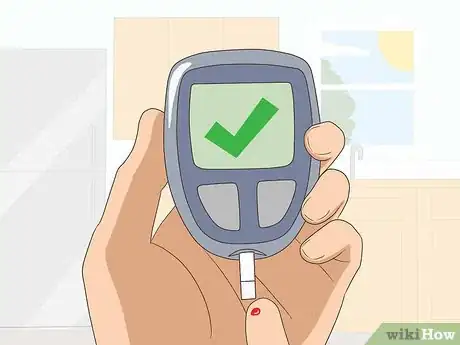




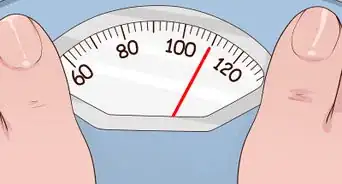

-Step-11.webp)





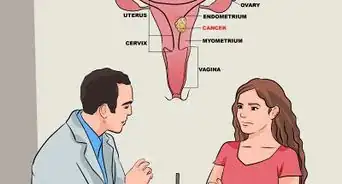







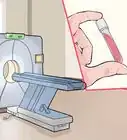

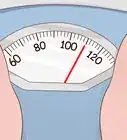



































Medical Disclaimer
The content of this article is not intended to be a substitute for professional medical advice, examination, diagnosis, or treatment. You should always contact your doctor or other qualified healthcare professional before starting, changing, or stopping any kind of health treatment.
Read More...